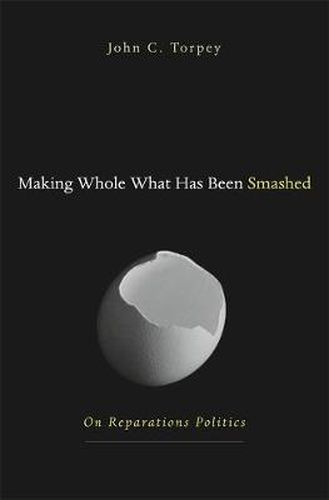Readings Newsletter
Become a Readings Member to make your shopping experience even easier.
Sign in or sign up for free!
You’re not far away from qualifying for FREE standard shipping within Australia
You’ve qualified for FREE standard shipping within Australia
The cart is loading…






This book explores the spread in recent years of political efforts to rectify injustices handed down from the past. Although it recognizes that campaigns for reparations may lead to an improvement in the well-being of victims of mistreatment by states and to reconciliation among former antagonists, it examines the extent to which the concern with the past may represent a departure from the traditionally future-oriented stance of progressive politics. Viewing the search for coming to terms with the past as a form of politics, it argues that there are major differences between reparations for the living victims of past wrongdoing and reparations for the descendants of such victims. More fundamentally, it argues that claims for reparations comprise a relatively novel kind of politics that involves a quest for symbolic recognition and material compensation for those seeking them–through the idiom of the past rather than the present. The prominent role of lawyers in such politics speaks to a larger trend toward the juridification of politics that often has problematic consequences for these campaigns. Concerns to right the wrongs of the past, the book concludes, may distract from the fight to overcome contemporary injustices.
$9.00 standard shipping within Australia
FREE standard shipping within Australia for orders over $100.00
Express & International shipping calculated at checkout
This book explores the spread in recent years of political efforts to rectify injustices handed down from the past. Although it recognizes that campaigns for reparations may lead to an improvement in the well-being of victims of mistreatment by states and to reconciliation among former antagonists, it examines the extent to which the concern with the past may represent a departure from the traditionally future-oriented stance of progressive politics. Viewing the search for coming to terms with the past as a form of politics, it argues that there are major differences between reparations for the living victims of past wrongdoing and reparations for the descendants of such victims. More fundamentally, it argues that claims for reparations comprise a relatively novel kind of politics that involves a quest for symbolic recognition and material compensation for those seeking them–through the idiom of the past rather than the present. The prominent role of lawyers in such politics speaks to a larger trend toward the juridification of politics that often has problematic consequences for these campaigns. Concerns to right the wrongs of the past, the book concludes, may distract from the fight to overcome contemporary injustices.